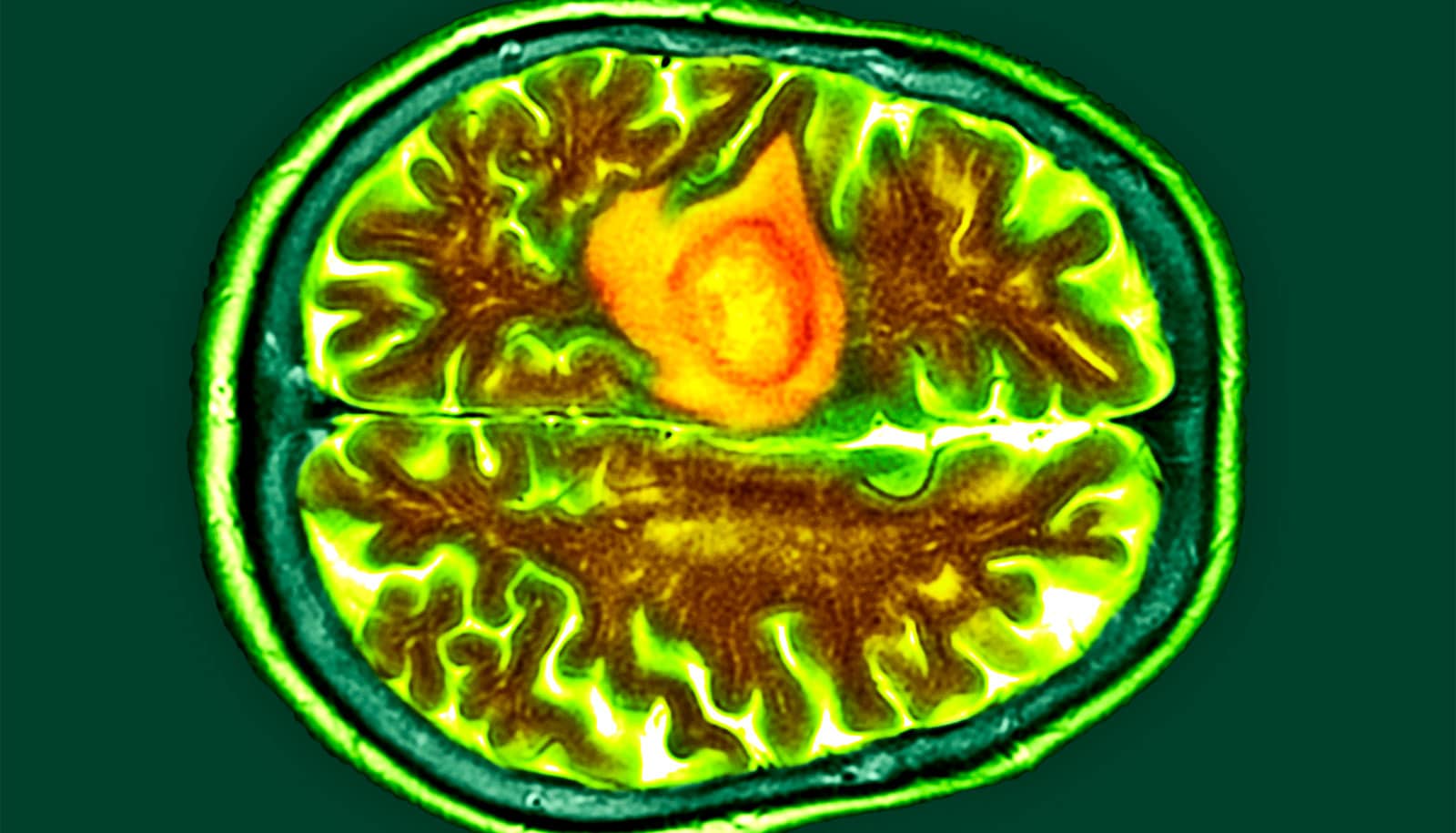
(Credit: Getty Images )
Blocking messages between cancer cells may stop their spread
Figuring out how to block communication between marauding bands of cancer cells could help fight cancer's spread.
New research may answer some key questions about how cancer spreads.
Researchers looked at a gene called EGFRvIII, which is present in patients with glioblastoma—a highly aggressive form of brain cancer that spreads quickly and that is difficult to treat.
Glioblastoma multiforme is most prevalent in adults aged 45 to 70 and has one of the poorest survival rates of any cancer. The exact causes of glioblastoma are still unknown.
“Cancer cells attack us in ‘bands’, but to effectively work together, they must communicate…”
In this study, Janusz Rak and his team explored how cancer-causing genes—also known as oncogenes—such as EGFRvIII change the content of messages exchanged between cells.
“Cancer cells attack us in ‘bands’, but to effectively work together, they must communicate,” says lead author Rak, a senior scientist in the Child Health and Human Development Program of the Research Institute of the McGill University Health Centre and a professor in the pediatrics department of the experimental medicine division at McGill University.
“One way they can do this is via tiny bubble-like structures called extracellular vesicles (EVs) or exosomes. EVs are filled with active proteins that function as messages being shuttled between cells.”
Rak and his team found that the oncogene EGFRvIII that triggers cancer also makes the cells “speak a different language.”
“The proteins in EVs can change cell behavior, for example they can make them invade tissues or metastasize. As EVs send these proteins between cells, some of them interpret this as a signal be more aggressive and this is an important part of what cancer really is,” explains Rak, who has been studying the cancer spread mechanism for more than 20 years.
“What’s amazing is that one single cancer-causing gene, EGFRvII, may change hundreds of proteins present in EVs, completely altering the messages that these cells send to one another,” he adds.
This research holds a great deal of promise for scientists looking for ways to stop the spread of cancer by blocking EVs from transmitting messages between cancer cells.
“Our work also suggests that different oncogenes may have different effects on cell-to-cell communication and on the type and content of the EVs that cancer cells release or receive; we need to know how this works to develop future therapies,” says Dongsic Choi, first study author and a postdoctoral research associate in Rak’s laboratory.
EVs, which can be detected in blood samples, are already being used to diagnose cancers. The EV-associated proteins Rak’s team discovered could help in the development of tests and tailored treatments for patients with glioblastoma in the future.
The findings appear in the journal Molecular & Cellular Proteomics.
A grant from the Canadian Institute of Health Research and the Canadian Cancer Society Research Institute funded the work. Support also came from the Montreal Children’s Hospital Foundation.
Source: McGill University
The post Blocking messages between cancer cells may stop their spread appeared first on Futurity.
Share this article:
This article uses material from the Futurity article, and is licenced under a CC BY-SA 4.0 International License. Images, videos and audio are available under their respective licenses.


